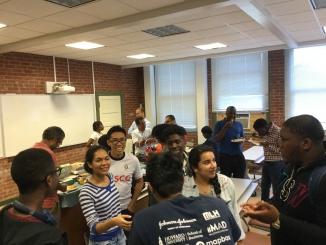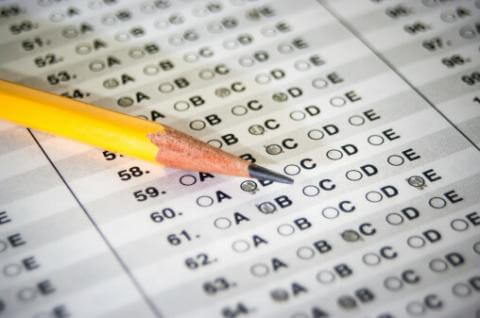Our department offers several career tracks for undergraduate students to consider.

Howard University's application process differs for first time in college (FTIC) students, transfer students, and international students. Please visit the university admissions website to complete your application process here!
I've been accepted into Howard University. Now, how do I declare Physics as my major?
If you would like to become a physics major, your first step is to contact the physics department. Either stop by our office or simply call (202) 806-6245.
Complete Your Undergraduate Admissions Application TODAY!
The total major requirement consists of 39 credits and should begin no later than the second year: 27 credits from section A (below) and 12 credits from section B (below). While not required, the one credit course, PHYS 196: Senior Thesis, is strongly recommended for all students.
In addition to the physics requirements, there are other courses in our program that are strongly suggested such as:
Prerequisites for all of the upper-level physics courses are:
If students are not ready to take calculus when entering the University, they should take MATH 007. Advanced Calculus I & II or two semesters of upper level mathematics courses are strongly recommended.
The college language requirement may be satisfied with French, German, or Russian. Substitution of any other language will require department approval.
Courses listed with two or more numbers must be taken in the sequence indicated. The student should consult the "Undergraduate Bulletin" for additional University and College of Arts and Sciences requirements.
3-semester introductory sequence and five upper-division courses.
a. PHYS 013/023 General Physics for Science and Engineering Students I (Lecture/Lab) (3 credits/ 1 credit)
b. PHYS 014/24 General Physics for Science and Engineering Students II(Lecture/Lab) (3 credits/ 1 credit)
c. PHYS 015/025 Introduction to Modern Physics (Lecture/Lab) (3credits/ 1 credit)
d. PHYS 175 Thermodynamics (3 credits)
e. PHYS 178 Electricity and Magnetism I (3 credits)
f. PHYS 182 Physical Mechanics I (3 credits)
g. PHYS 190 Quantum Physics I (3 credits)
h. PHYS 194 Experimental Physics I* (3 credits)
*WRTG 702 is the same as PHYS 194, but satisfies the College's third writing requirement.
Four more courses are required to complete the physics major. These courses must be coherent and satisfy one of the following areas of concentration:
To minor in Physics & Astronomy, the following courses are suggested to build a strong program of study:

Our department offers several career tracks for undergraduate students to consider.

This is the abbreviation for the name of the building which houses the physics department, Thirkield Hall. View our address and map here.
In most classes, you are required to buythe required texts.
A great deal of work in all of the science disciplines is interdisciplinary. This is a trend that is expected to grow and not diminsh.
A recitation is an integral component of many lower division physics courses at Howard University. They are typically 2 hour periods where students have an opportunity for more in depth work with topics introduced in lecture.